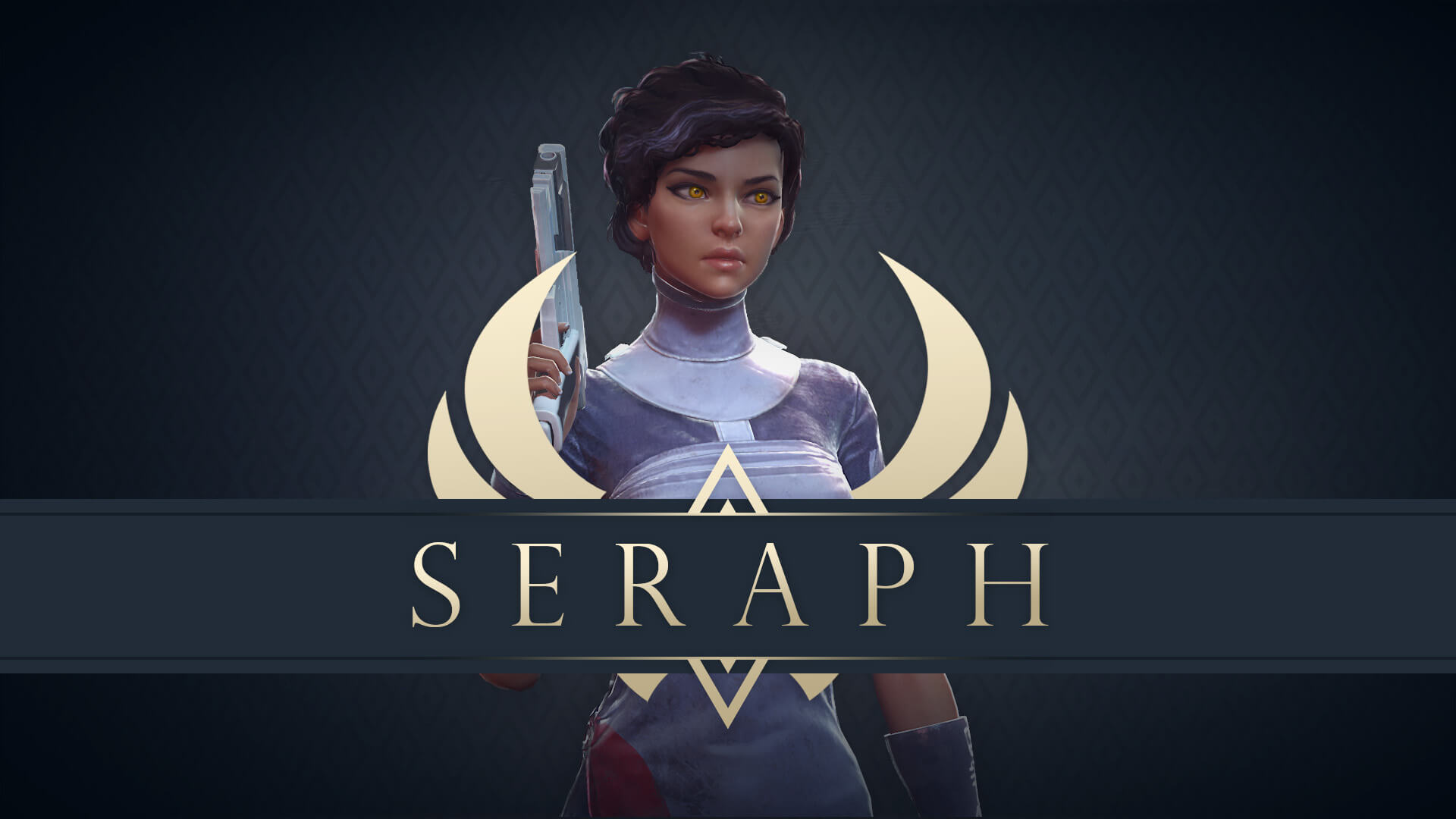Title: Seraph
Available On: PC, PS4
Developer: Dreadbit
Publisher: Dreadbit
Genre: Action, Platformer, Bullet Hell
Official Site: https://www.seraph-game.com/
Release Date: September 20, 2016
Where To Buy: Steam
Seraph aspires to be a sci-fi Hong Kong action film transported to a platforming video game – it is slick, stylish, and over the top with its action. The game lets you pull off some insane “Gun Fu” stunts, flipping and twisting around an arena, blinking in and out of danger, and pumping enemies full of bullets. It achieves that zen-like quality that bullet hell games strive to find on many occasions, and that is when it is at its best. It is not always there, but those looking for a new take on the challenging genre will find a lot to like with Seraph.

Seraph looks pretty, and the music is great. The animation feels smooth and on point; there is never the unfair “I died because the game cheated” moment. Again, it hits those zen moments that draw people to bullet hell games, and as you flip around the screen and use every ability you have to get through a conflict unscathed, you feel pretty darn powerful. Ultimately, Seraph achieves what many games with a much larger team and budget fail to a growing sense of power and skill as you improve at the game.
There is a minimalist story that drives Seraph: you play as an angelic being who inhabits the body of a human. You were imprisoned, there’s a bunch of demons on the loose, and you are released to shoot them. There is an attempt to have some mystery and existential ideas at play, but telling a brief story in text boxes at the beginning and end of each level is really just there to pull you through the bullet hell levels. It does so with a few interesting mechanics.

A fascinating aspect of Seraph‘s design comes from the lack of aiming required. As you flip through each level, the character will automatically aim at enemies with your default, infinite ammo, dual-wielded pistols or any upgraded weapon. This allows you to focus on avoid fire and positioning yourself advantageously; it does not make the game a cakewalk. You move slower while firing, you have dodges and special powers to worry about, and there is the constant threat of using up your very limited ammo of powerful weapons and having to default back to the underpowered pistols. If there is a specific enemy you want to take out first, the game lets you use the right stick to focus your aim; every time I tried to do this, it wound up costing me a good chunk of life as I was never quite able to work it into the rhythm of the shooting.
Another interesting feature of Seraph is the constantly evolving difficulty. As you string together kills and avoid damage, the difficulty of the game (and thus, your point multiplier) also increase. Get hit, and it drops down. It is a fun way to continually test your skills, and it rewards you with better skills and better items as you earn higher difficulty ratings. You will also see new enemies and attacks as the difficulty ramps, keeping even the best players on their toes.

Speaking of items, there is also a rather robust upgrade system in Seraph. As you kill stronger enemies and reach higher difficulties, you will pick up more and more crafting items that can then be used to unlock new abilities or upgrade your existing weapons. An even better way to earn these items is to participate in the daily and weekly challenges, which feature leaderboards for runs of the exact same level or series of level and offer rewards based on your standing at the end of the challenge. Seraph wants you to load and play the game every day, which can be very nice but can also lead to some of the game’s glaring issues.
How do you feel about metal? Not the style of music, but honest to goodness metal? Because you are going to see a lot of it in this game. Every level looks the same. The monsters all look the same. Finding their attacks, paying attention to what is happening against the bland backgrounds, keeping your focus sharp in a genre of gaming that demands you do just that… It can be very tough. Participating in the challenges is a welcome way to earn some resources, but, even with their differing objectives and set-ups, can feel like more repetition. If you have not yet beaten the game, why play through a survival challenge that asks how far you can get in the game before you die? My biggest complaint with Seraph is that it feels like the same thing repeated again and again, and not in a fun way.

My other biggest issue and this might just be me, is that it can feel sluggish. Maybe it was a deliberate design choice, but your default run speed feels slow. Your jump, and especially your running while firing speed, feel slow. In a game that is so obviously trying to echo John Woo and others in the “Gun Fu” genre, it feels like things should be much quicker. Granted, when you start blinking around and using your powers, things speed up. I’m not asking for Super Meat Boy speed, but a little extra zip would have gone a long way in this one. No one likes a sluggish platformer.
Overall, Seraph is a solid outing for bullet hell enthusiasts. It has a lot of good going for it. Some of its faults, however, are big. The repetitive nature and the somewhat sluggish speed make it less than a slam dunk. Most could enjoy it, but it takes a special someone to keep coming back to it.
- Gameplay: Auto-aiming bullet hell. Jump around, shoot things, don’t get hit.
- Graphics: Pretty animation. Backgrounds are repetitive.
- Sound: Good music, but the sound is minimal.
- Presentation: Tacked on the story, fun challenges.
[review]







